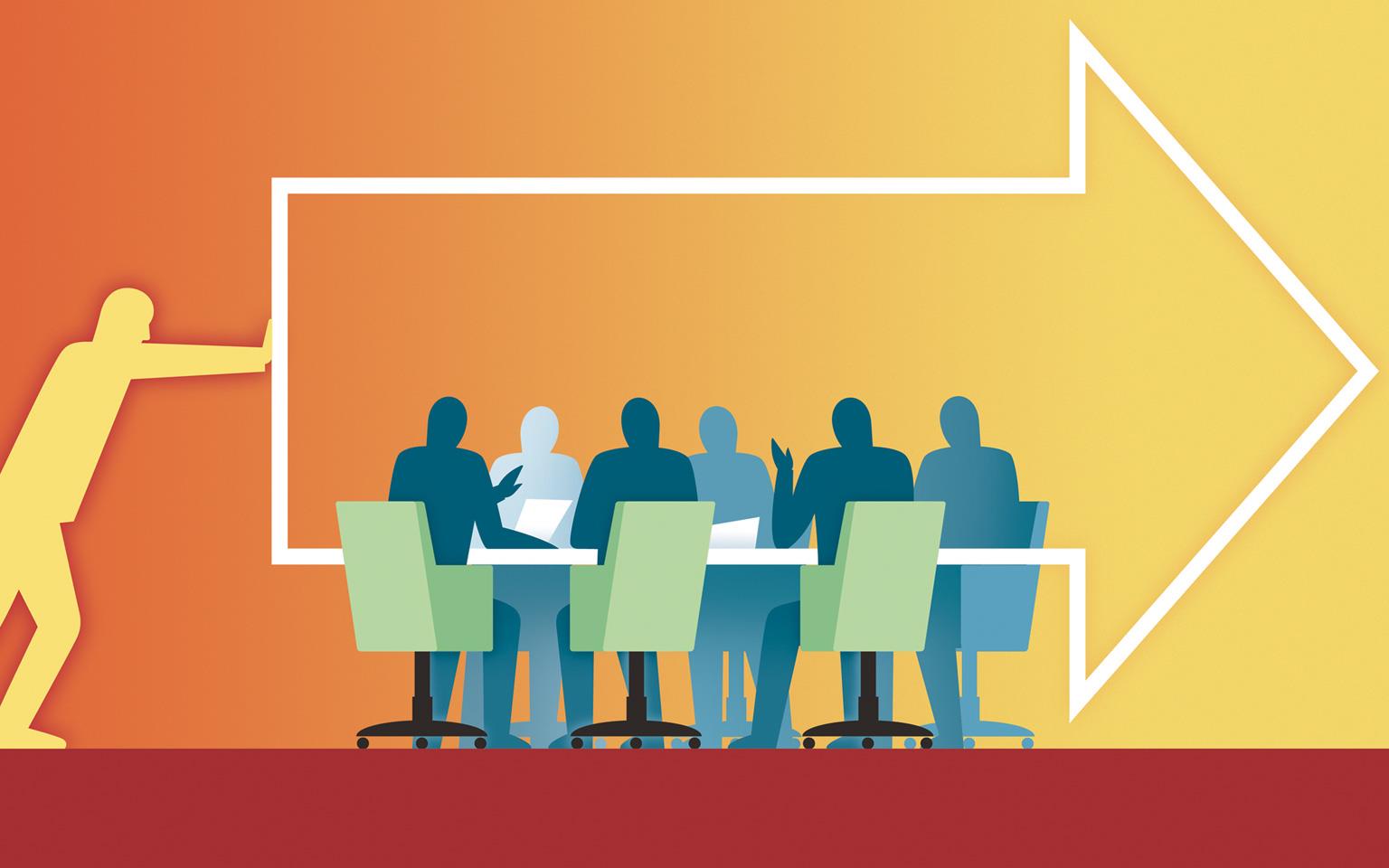
Sociocracy: A New Management System for Better Decisions
Companies find increased employee buy-in and morale, and better information for decisions
by Sheella Mierson, Ph.D., and Sarah Lozanova
During the financial crisis of 2008, Creative Urethanes, a plastics manufacturing company based in Virginia, saw business dry up almost overnight, with sales down by 50 percent. Many companies in similar positions went out of business, but Creative Urethanes was saved by its governance model – sociocracy.
CEO Richard Heitfield said, “All of a sudden, our business was way down. While that was going on, our management group was sitting down and making a plan. It was a very detailed and elaborate plan that happened spontaneously. Folks were comfortable enough with the process to put it on the table and get it into action. That’s a direct result of using the sociocratic process. If these guys had not come to action and done the work, we would have folded.”
Sociocracy, sometimes called dynamic governance, is an organizational operating system that empowers people at all levels to make policy within their established domains of responsibility and authority. Policy decisions are made as close as possible to where the work is being done, and communication within the company flows bottom-up as well as top-down. (If you want to know more about how this works, see Dynamic Leadership: Getting Around Blind Spots in last month’s Richmond Chamber of Commerce Newsletter.) All this fosters better and clearer decisions. The company culture that was built at Creative Urethanes through adoption of sociocracy in the 1980s allowed leadership to spring up when it was most needed, enabling the business to stay afloat during a very difficult time.
In many organizations, decision makers under-utilize the knowledge, expertise, and experience of lower-level employees when it’s time to make decisions. Even in companies where the leadership wishes to create an open-door atmosphere, reality may be quite different.
In horizontal governance everyone has a voice in decisions; vertical governance is the traditional top-down hierarchy. We usually think of those two as either-or, but the unique thing about sociocracy is that it’s both-and. Both everybody has a voice that can’t be ignored for setting policy (that determines how the work will be done) and the management hierarchy stays in place for daily operations.
You may think that if every voice is heard, meetings take longer, but the opposite is often true, in part because of carefully designed meeting formats. Meetings become more effective, thus saving time and money. Lack of buy-in and lack of information in top-down decision-making can cause meetings to drag on and on. Plus when managers put a decision into place without the needed information that is already available within the organization, they are more likely to have to go back and revisit the decision. They end up spinning their wheels.
Sociocracy often leads to higher morale, increased productivity, and better decisions. A school that implemented the method found that there were more good ideas for decisions and that teachers took more initiative. Some new teachers came from schools where their voices were not being heard, and they found having a voice tremendously validating and energizing.
Increased productivity can of course directly affect the bottom line. Heitfield said, “We saw increased profits within the first year of using [sociocracy]. Over time we have applied it to many areas of the company. As a result we have better communication throughout the company, lower employee turnover, more energy in staff members due to increased involvement, more creative ideas that help us thrive in our industry, and continuous improvement within the organization. Best for me is I have more assistance – having everyone’s help…has lifted some weight off my shoulders.”
To schedule a free consultation to determine if sociocracy is right for your organization, email sheella.mierson@sociocracyconsulting.com. To learn more about it, go to sociocracyconsulting.com for free articles, case studies, and short videos.
Sheella Mierson, Ph.D., member of the Richmond Chamber of Commerce, is a consultant with The Sociocracy Consulting Group. Sarah Lozanova is a regular contributor to environmental and energy publications and websites, including Mother Earth Living, Green Building & Design, Triple Pundit, Urban Farm, and Solar Today. This article is modified from one that appeared in Triple Pundit (2014).
